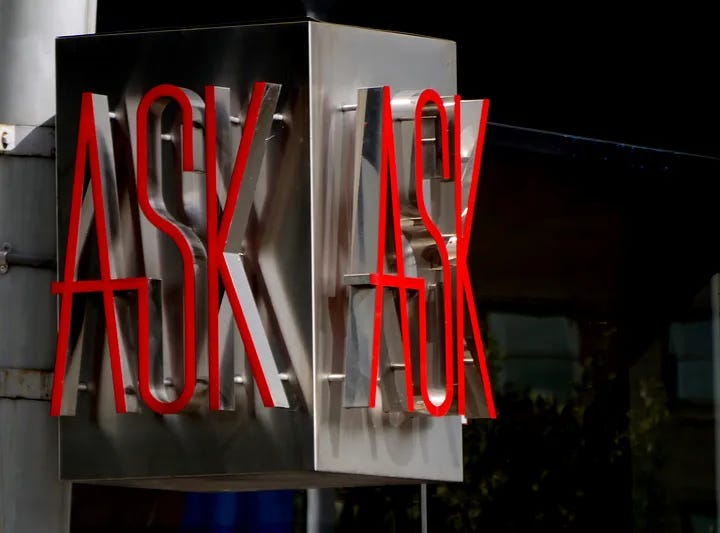
Have you ever had someone say something to you and all you could think was, “Huh?” It feels like asking a question might make you look dumb.
Listen
It starts with listening. Often, when a conversation begins we anticipate what others might say. Then it takes a turn and we get lost. Like the fragile male ego, we don’t stop to ask for direction.
Curious
In Ted Lasso’s famous scene, he reminds us to be curious, not judgemental.
Perhaps he is on to something. Suspend judgment, listen, and ask a few questions.
Open
Use open-ended questions to get someone to share. This article explains it well. “Open-ended questions prompt the beginning of a longer conversation by asking questions starting with ‘why,’ ‘how,’ and ‘what if?’” Incorporate that to start a conversation.
Dynamics
It is important to be mindful of the group dynamics. Where some people are more willing to share. The number of people present can affect that. For instance, if your boss is present you may share different things.
Cooperation
Asking questions also indicates you are willing to cooperate. It shows you consider others' ideas. We have all worked with a person who wants everything to work their way. Remember you don’t have the market cornered on good ideas!
Follow-up
Follow-up questions are impactful. In Harvard Business Review they said, “follow-up questions seem to have special power. They signal to your conversation partner that you are listening, care, and want to know more.”
Collaboration
Asking questions helps us synch up with our co-workers. Therefore, we collaborate better as well. It doesn’t mean we totally agree but, that we respect each other.
While coding is important, we can’t be aligned with our stakeholders if we don’t ask the right questions. Start with listening to what they say. Channel your curiosity and use open-ended questions. Understanding the team dynamics can help you cooperate and collaborate more effectively.

